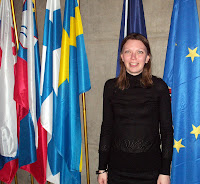Labour's disgrace
Is there no limit to the depths that the Labour Party is prepared to sink in its tirades against the democratically elected government in Scotland? The Sunday Times commentary on Labour’s Scottish conference at the weekend included a report of remarks made by Lewis (now Baron) Moonie, formerly junior minister at the Ministry of Defence in which he drew comparisons between politics in Scotland today (and by implication the SNP Government) and Germany under Hitler. To quote from the Sunday Times:
‘A donor to Alexander's leadership campaign denounced her commission as “appeasement” of the SNP. Baron Moonie of Kirkcaldy, a former defence minister who gave £500 to Alexander last year, said that instead of proposing big changes, she ought to be trying to stabilise the current devolution settlement. “This policy of appeasement, Chamberlain tried it in the 1930s. It didn't work. It ain't going to work now,” he said.’
This is the latest in what is emerging as a trend by Labour’s Scottish politicians to utilise imagery from the darkest days in Europe’s history in a casual and entirely despicable way to describe politicians with whom they disagree – and not only those in opposition parties. Was it not Michael Connarty who, back in October in a debate over the EU Lisbon Treaty, likened his own Foreign Secretary, David Milliband, to the same Neville Chamberlain seeking “peace in our time" with the EU?
There is no place in Scottish politics (or indeed politics in any half-way decent country) for this abhorrent use of Nazi-related analogies that seem to have become the stock-in-trade of Labour’s Scottish politicians. To utilise any form of comparison between Scotland’s Government and that of the Nazi party in 1930s Germany is offensive in the extreme. If Wendy Alexander had an ounce of integrity she would condemn Lewis Moonie’s remarks. If he had an ounce of decency he would apologise unreservedly – as Michael Connarty was forced to do – for making them.

